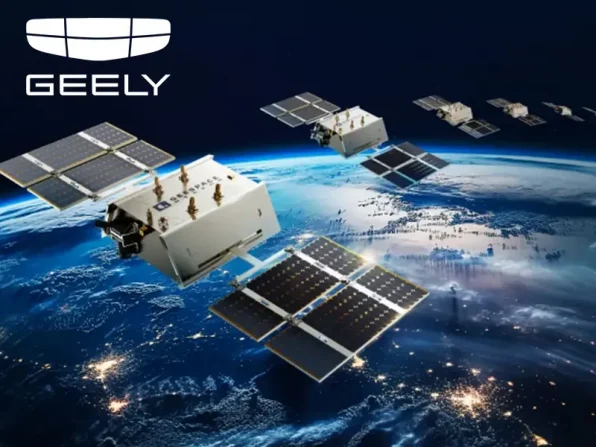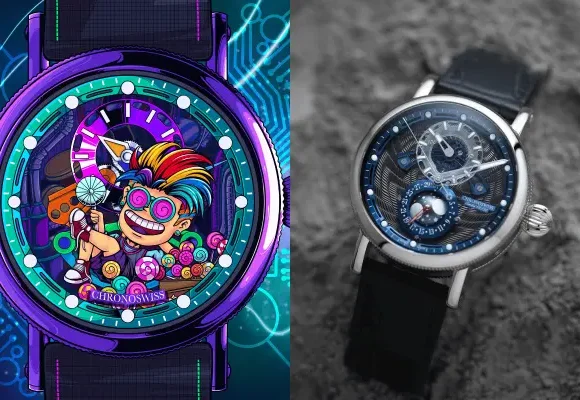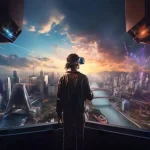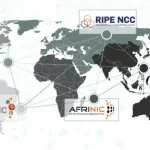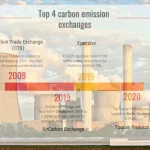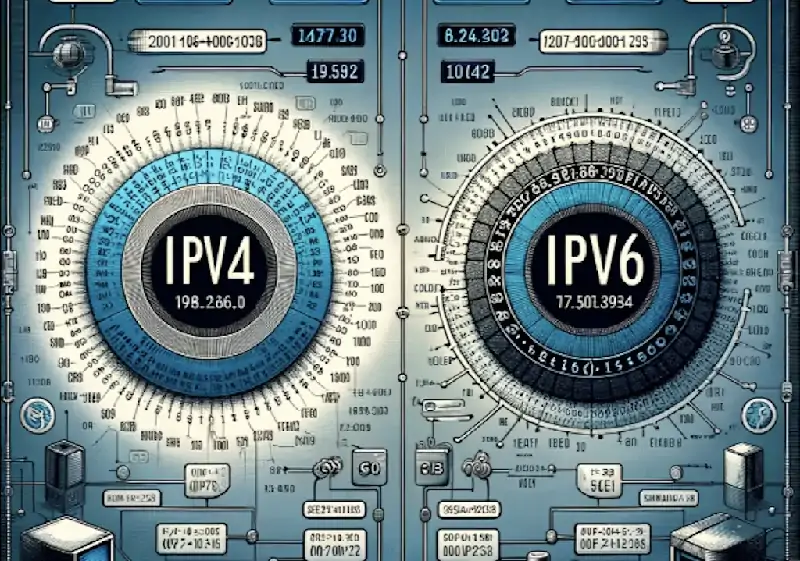- Hyundai’s Trailer Drone transforms the logistics landscape with its autonomous and hydrogen-powered design, promising a more efficient and eco-friendly future for cargo transport.
- The Trailer Drone’s e-Bogie platform enables intelligent and interconnected autonomy, showcasing impressive maneuvers and the potential for seamless, large-scale cargo transportation in diverse settings.
- Beyond cargo, Hyundai envisions the e-Bogie’s modular design contributing to a sustainable future, from highway platooning to emergency services, aligning with their ambitious vision for hydrogen as the fuel of tomorrow.
In a visionary stride towards the future, Hyundai introduces the Trailer Drone—a hydrogen-powered, AI-steered container truck, redefining transportation. Embark on a journey into this groundbreaking concept, conceptualized in 2021 and awarded the prestigious Red Dot Award in 2022. Join us as we explore Hyundai’s commitment to a cleaner, smarter, and autonomous mobility future.
Also read: UK aims for fully self-driving cars by 2026
The trailer drone: A glimpse into the future of transportation
Autonomous driving technology
The Trailer Drone showcases fully autonomous driving technology, eliminating the need for a driver compartment. Thanks to the precision enabled by a pair of connected e-Bogies at each end, the vehicle can navigate efficiently without human intervention. This concept leverages the intelligence of the e-Bogie platform, derived from railroad car technology, which efficiently houses essential components such as propulsion, control, steering, and suspension units within a limited space.
Hydrogen fuel cell power
Equipped with a high-power fuel cell system, the Trailer Drone runs on clean hydrogen energy. Hydrogen tanks mounted at the front and bottom of the trailer provide an impressive range of 1,600 kilometers per charge. This marks a significant step toward reducing the environmental impact of transportation in the fields of economy and commerce.
Modular platform and flexibility
The Trailer Drone’s modular platform, known as the e-Bogie, is inspired by two-axle subframes on train cars. This platform offers a versatile and scalable solution for various applications. Depending on the specific use case, the standard e-Bogie can be outfitted with different body kits and wagons, contributing to increased research and development efficiency.
Innovative cluster mode
In Cluster Mode, multiple e-Bogies can operate together, forming a Trailer Drone capable of autonomous navigation in shipping yards, highways, and urban centers. The dual independent steering at both ends enables impressive maneuvers, including turning in place and diagonal “crab walk” driving. These large trailers can also platoon on the highway for improved aerodynamics and long-haul efficiency.
Beyond logistics: The rescue drone concept
The e-Bogie platform extends its capabilities beyond shipping and logistics with the Rescue Drone concept. In emergency situations, a single Fuel Cell e-Bogie equipped with emergency service equipment can deploy autonomously into firefighting or disaster relief scenarios. Responders can remotely operate the Rescue Drone using the video feed from an aerial drone charged and stored atop the platform.

Hyundai’s vision 2040: Pioneering Hydrogen as the fuel of the future
While the production readiness of these vehicles remains uncertain, they underscore Hyundai Motor Group’s commitment to its Vision 2040 goal of popularizing hydrogen as the renewable fuel of the future. The Trailer Drone and other hydrogen-powered concepts introduced during the Hydrogen Wave forum demonstrate Hyundai’s dedication to advancing sustainable and technologically advanced solutions in transportation.
As Hyundai plans to launch new fuel cell systems in 2023 and aims for a comprehensive lineup of hydrogen-powered vehicles by 2028, the Trailer Drone stands as a testament to the company’s leadership in shaping the future of mobility.
As we bid farewell to the conventional norms of trucking, Hyundai’s Trailer Drone emerges as a herald of a new era. With its autonomous prowess and eco-friendly hydrogen fuel cell, this marvel of engineering paints a vivid picture of the future we’ve long dreamed of – where technology seamlessly intertwines with sustainability. The Trailer Drone isn’t just a truck; it’s a glimpse into Hyundai’s Vision 2040, where hydrogen takes center stage as the renewable fuel shaping the destiny of transportation. As Hyundai paves the way for a hydrogen-powered fleet by 2028, the Trailer Drone stands tall, symbolizing not just a vehicle but a commitment to a cleaner, greener, and more efficient tomorrow.
Hyundai’s trailblazing Trailer Drone: A critical examination of the future of autonomous, Hydrogen-Powered transportation
Navigating the terrain of Hyundai’s Trailer Drone demands a keen eye and critical thinking. While the concept propels us into a futuristic realm of transportation, let’s dissect a few crucial aspects.
Picture this: a hydrogen-powered, autonomous container truck. Sounds groundbreaking, right? Yet, we must ponder the readiness of our infrastructure. Hydrogen fueling stations need a widespread embrace, entailing hefty investments and meticulous planning.
Now, let’s shift gears to the Trailer Drone’s versatility. Beyond hauling cargo, can this autonomous hydrogen marvel handle the unpredictability of emergency services? Critical thinking nudges us to scrutinize its adaptability in dynamic scenarios.
Zooming into the timeline, conceptualization in 2021 to bagging the Red Dot Award in 2022 signals lightning-fast progress. But, is this pace compromising thorough testing and safety protocols? Are we witnessing genuine readiness or risking premature deployment?
In the grand finale, while the Trailer Drone promises a cleaner, smarter future, critical thinking becomes the compass. It guides us through infrastructure challenges, probes application feasibility, and casts a discerning eye on the warp-speed development timeline with its real-world consequences.
